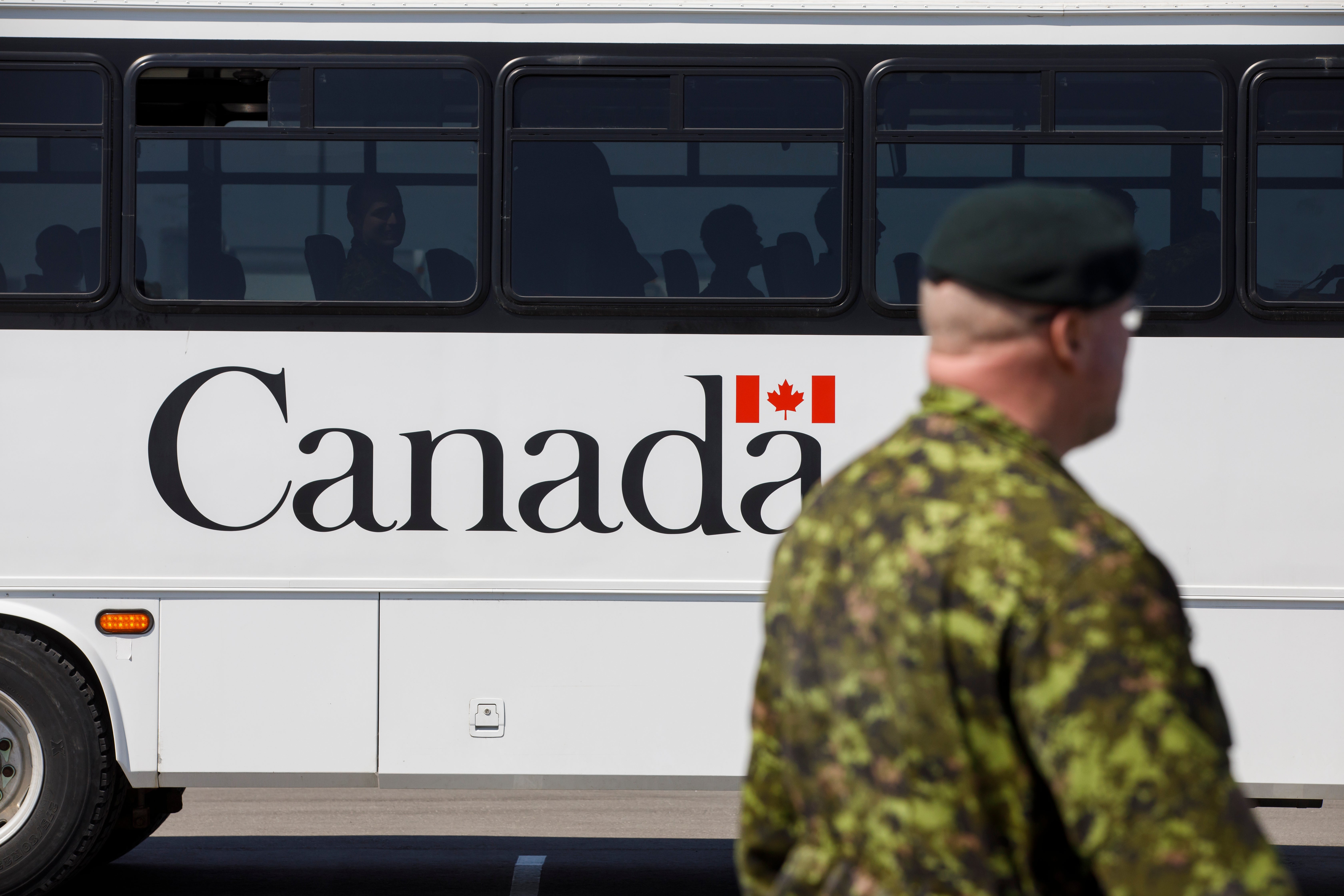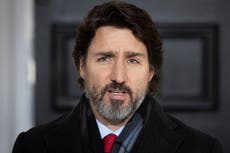Canada’s top military officer temporarily steps aside in midst of investigation
Reports surfaced this month that Mr Vance behaved inappropriately with two female subordinates

Canada’s top military officer temporarily stepped aside as chief of the defense staff after military police opened an investigation into unspecified accusations against him.
The top military officer, Admiral Art McDonald, stepped aside on Wednesday in the midst of a separate investigation into the previous chief of the defence staff, Jonathan Vance, a now retired army general.
Reports surfaced this month that Mr Vance behaved inappropriately with two female subordinates.
Citing the police investigation, Harjit Sajjan, the defence minister, declined to offer any specifics on Mr McDonald’s decision to step aside. The Department of National Defence also did not offer any details, and Mr McDonald has not publicly commented on the accusations.
“I take all allegations of misconduct seriously and continue to take strong action on any allegation of misconduct that is brought forward,” Mr Sajjan said in a statement released late Wednesday night on Twitter. “No matter the rank, no matter the position.”
Canada’s military has long struggled with allegations of sexual misconduct and sexism.
In 2019, the government set aside $690 million (about £600 million) to settle claims of sexual harassment and misconduct within its military brought in five class-action lawsuits.
The settlement followed an external review by a retired Supreme Court justice who found that military had “an environment that is hostile to women and LGTB+ members, and is conducive to more serious incidents of sexual harassment and assault.”
During his tenure, Mr Vance, who served as defense chief from 2015 to until his retirement last month, launched a highly publicised program to “ensure sexual misconduct is never minimised, ignored or excused.”
When Mr McDonald was sworn as chief of the defense staff, he spoke about the need to change the culture within the military and apologised to its members “who have experienced racism, discriminatory behavior and or hateful conduct.”
He told reporters that over his career he had unintentionally perpetuated some of the problems that he now planned to address.
But less than a month into his new job, Admiral McDonald faced criticism after posting a tweet promoting diversity and cultural change accompanied by a photograph of eight white senior military commanders around a table with a single woman in civilian clothes and a ninth man appearing on a video screen behind them.
Lieutenant General Wayne Eyre, the commander of the army, will temporarily act as the military’s top officer.
Last week, Mr Sajjan — a former lieutenant colonel in the army who served in Bosnia and Afghanistan — declined to tell the House of Commons committee on national defense when he first learned about the accusations against Mr Vance, only saying he was “shocked” when they were first aired publicly by Global News, a Canadian broadcaster, earlier this month.
Mr Vance, who twice led the Canadian Forces based in Kandahar, Afghanistan, was appointed by the previous conservative government.
On Sunday, Global News broadcast an interview with Kellie Brennan, a former army major, who said that she had a sexual relationship with Mr Vance over several years, including periods when she was under his command in Toronto and Ottawa.
When asked if it was consensual, Ms Brennan said: “On a personal level, ‘consensual’ meaning was I participating in it? Yes.”
But she added: “Could I say no to him? No. The reason why I say that is because if he rang me on the phone or if he texted me, I was obliged to get back to him.”
She said her attempts to raise the issue within the military went nowhere.
“It was a hot potato that nobody knew what to do with,” she said.
Mr Vance denied having sex with Ms Brennan while she was under his command, but said they had dated in 2001.
Cases involving improper sexual relationships normally go to a military court-martial.
Michel Drapeau, a retired army colonel who is now a lawyer specialising in military law, said that under the military’s justice system, officers may be prosecuted for having intimate relations with anyone under their command.
Mr Vance’s retirement, Mr Drapeau added, does not prevent him from facing charges for misconduct committed while he was on active duty.
But Mr Drapeau said that the court-martial system requires cases to be authorised by a higher ranking officer, making it “almost impossible to pursue charges” against Mr McDonald should the investigation turn up any misconduct.
Earlier this week, the Conference of Defense Associations Institute, a Canadian policy group led largely by former military officers, issued a statement raising concerns about the effect sexual misconduct allegations are having on the military.
“Allegations of this nature erode public trust in the Canadian Armed Forces, and ultimately negatively affect morale and harm efforts to recruit the future protectors of our nation,” the group said.
The New York Times
Join our commenting forum
Join thought-provoking conversations, follow other Independent readers and see their replies
Comments


Bookmark popover
Removed from bookmarks